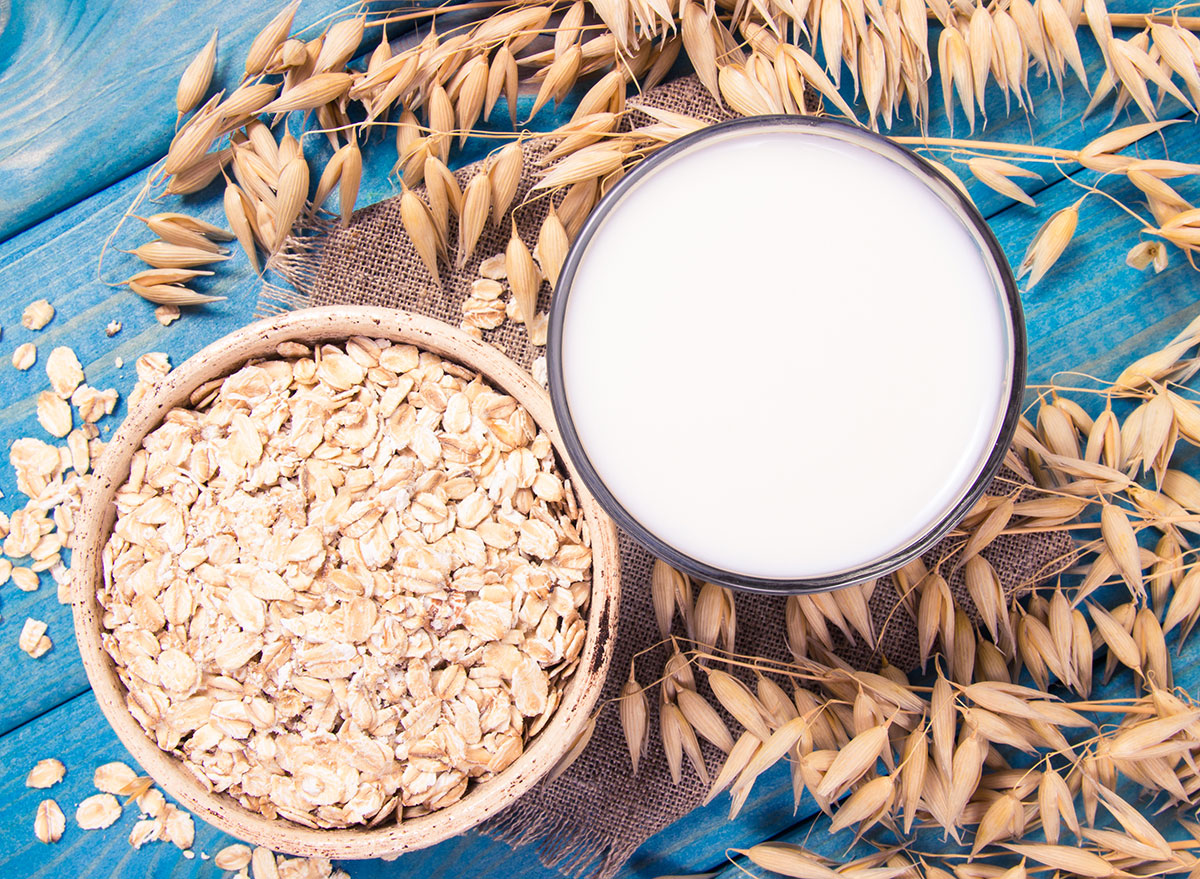Oat milk is becoming very popular in the US, second only to almond milk. While oat milk is considered a good plant-based milk alternative, is it really that healthy?

Oat milk is not as good for you as the healthy-claiming statements on the label would make you believe – especially compared to raw grass fed cow’s milk. Most often commercial brands contain unnecessary harmful ingredients. The only two ingredients should always be water and whole grain oats. However, this is not the case as most commercially available oat milks tend to have long ingredient lists.
Moreover, some popular brands contain refined oil, such as canola oil that may lead to inflammation in your body. Additionally, the oats that the milk is made from may not be gluten-free as there is also a high risk of pesticide residue and gluten cross-contamination.
ALL OAT-BASED BEVERAGES ARE HIGH GLYCEMIC INDEX
Our bodies break apart processed carbohydrates into simple sugars (glucose). Foods that rapidly increase blood glucose levels are known as high Glycemic Index (GI) foods.
The Glycemic Index of oat milk has been measured to be 69. Eating a diet made up of mostly high-GI foods is associated with chronic disease and strongly associated with heart disease.
4 REASONS TO AVOID OAT MILK
- The sugar in oat milk is a specific type called maltose, which is unique in that it has a high glycemic index. That means it raises blood sugar rapidly, compared to other types of carbohydrates. A 12-ounce glass of oat milk has about the same blood sugar impact as a 12-ounce can of Coke.
- Glyphosate, also known commercially as Roundup, is often sprayed on oat crops to speed up drying at harvest.
- Plant-based beverages often contain gums and other thickeners to prevent separation and improve a drink’s texture. These gums and thickeners are highly processed and can sometimes cause gastrointestinal discomfort.
- Oats can contain phytic acids, a compound that is known as an “anti-nutrient.” Anti-nutrients are ingredients that can sabotage the absorption of other nutrients and in the case of phytic acid, it can bind to minerals like iron, zinc, and calcium so they can’t be absorbed very well.